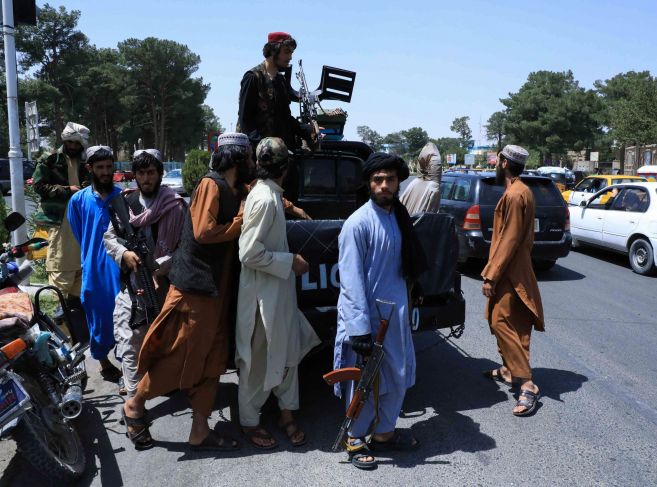Two decades of international intervention have been wasted, hope created only to be dashed by the new reality, hundreds of thousands of deaths, and over a trillion dollars lost.
That is the result of the Western involvement in Afghanistan as the Taliban are poised to take over and revert the country to a seventh century theocracy.
History has taught us that no foreign power can take over Afghanistan. The Afghan tribes fight and die with little respite until the foreigners leave. Time is always on their side as they wear down the invaders until they withdraw in frustration.
Once again, this historical lesson has proven true, and that is the reality that we face today.
The Americans and their allies have pulled up stakes and, with lightning speed, the Taliban are back in power in most of the country with the capital Kabul slated to fall any day now. Along with the Taliban come Al Qaeda and the Islamic State and the disruption that they will bring to global security.
The dominoes began to fall when then-president Obama announced his plans to withdraw from Afghanistan. From then on, the Taliban understood that time was on their side and that a U.S. withdrawal would guarantee the Taliban’s eventual victory. The Trump administration that capitulated to Taliban demands for bilateral peace talks eliminating any participation by or role for the democratically elected government of President Ghani. It was followed with the Biden administration’s decision to pull out with little warning – leaving Ghani and his government to meet the Taliban onslaught alone and with little credibility.
Removing the government from negotiations created the perception that real leadership in Afghanistan rested with the Taliban and not with Ghani. This has led to the Afghan military – by all accounts well trained and well-armed – to lose all confidence in its civilian and military leaders and simply run away when confronted by Taliban forces.
NATO’s initiatives at nation building in Afghanistan succeeded in creating hope for a while but failed completely to create a viable and secure government. The Afghan government’s mendacity and corruption have produced this military debacle, and no amount of foreign intervention could have prevented the inevitable fall of such an inept political class.
The results are alarming
The Taliban have inherited a veritable treasure trove of U.S. military equipment and bases abandoned by NATO and Afghan soldiers.
The women and girls of Afghanistan will no longer be able to study, work, and live independently in the Caliphate as extreme Sharia is imposed once again on the population. They will live in a bitter and perpetual captivity at the whims of oppressive religious zealots.
Many Afghans will be executed for having collaborated with the invaders or simply for having even dared dream of securing a better future for themselves and their country.
Internationally, while Afghanistan will likely be isolated from the international community, President Biden will be criticized for the sudden U.S. withdrawal and abandonment of the nation that it tried and failed to develop and defend.
But this may not necessarily go against long-term U.S. geopolitical interests.
While the U.S. was in Afghanistan, the Taliban – an expansionist Islamist grouping with a radical jihadist mentality – was boxed in by the U.S. presence.
This left Russia free to pursue their expansionist objectives in the former Soviet Central Asian States and Ukraine, and it also allowed China to pursue its global interests militarily in Southeast Asia and economically through its Belt and Road initiative – with their Afghan flanks protected by the U.S.
One wonders if the Biden administration calculated that a withdrawal of U.S. forces would leave an expansionist and fanatical Taliban along with Al Qaeda and Islamic State allies in control and capable of supporting oppressed Chechen Muslim minorities in Russia and Uyghur minorities in China.
Now China and Russia will have to deal directly with a disruptive and expansionist Islamist state on its borders while the U.S. divests itself of a burden that has no real geopolitical value to its global interests. China may figure that it can control Taliban jihadist and expansionist objectives, much like many previous empires believed that they could control Afghanistan.
They all failed to do so
U.S. geopolitical interests could be well served by having a nervous China and Russia face increasing Muslim unrest within their borders inspired, underwritten, and supported by the Taliban and their Al Qaeda and Islamic State allies. from a “liberated” Afghanistan.
So, while the Afghan people, especially women and girls have lost their futures and many Afghans will continue to lose their lives, the United States may well benefit on the global geopolitical chess board.
This may all sound a bit cynical, but so is much of the calculus that goes into shaping realpolitik.
Edición: Laura Espejo
Habrá extensión de los horarios de servicio de transporte
La Jornada
El valor comercial estimado de las especies supera los 420 mil pesos
La Jornada
Mercurio, Venus, Júpiter y Saturno serán visibles a simple vista si el cielo está despejado
The Independent
Olvera, Agúndez, Vázquez y Willars alcanzaron la presea en la final de equipo mixto de 3 y 10 metros
La Jornada
